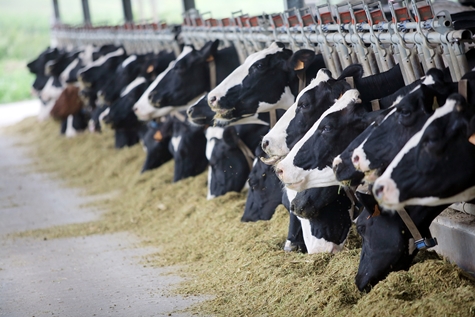FSMA Final Rule for Preventive Controls for Animal Food
As part of the US Food Safety Modernization Act (FSMA), the US Food and Drug Administration (FDA) has issued several rules to further clarify the requirements of the regulations. This is one of these rules, which was developed after extensive consultation with numerous stakeholders.
Key Requirements
Current Good Manufacturing Practices (CGMPs) have been established for animal food production. These have been finalized by the FDA. Of note:
• Processors of human food selling a by-product of their production do not need to implement additional preventive controls except to prevent physical or chemical contamination during holding or distribution.
• Further processing of a by-product requires the facility to comply with CGMPs but they can choose whether to implement those required for human food or animal food.
Facilities must implement a food safety system that is based on an analysis of hazards and risk-based preventive controls. A written food safety plan is required and must include:
- hazard analysis
• preventive controls
• oversight and management to include
o monitoring of the preventive controls
o verification that the above activities are scientifically valid, effective and are being carried out regularly
• recall plan
Supply-Chain Program
The supply chain program for animal food safety is more flexible than it is for human food safety, with offset compliance dates so that processors are not required to implement the rule before their suppliers are.
Should the facility identify a hazard within the supply chain, they must implement a supply-chain control. This does not apply if the facility uses verification procedures themselves, or if they rely on their customer to implement hazard controls.
Where supply chain controls are implemented, processors must ensure that they receive their ingredients from approved suppliers only. Unapproved suppliers can be used temporarily but these ingredients must be subjected to verification activities.
A facility is not required to implement hazard controls if another entity in the supply chain will be doing so, such as a customer or another processor. In this case, the facility provides a written notice that the food is “not processed to control (identified hazard)” and has their customer sign a letter stating that they will undertake the necessary actions.
Definition of a Farm
For the definition of a farm, please see the Preventive Controls for Human Food Rule. Facilities meeting the definition of a farm are NOT subject to this rule.
If a farm includes a feed mill, the mill would not need to implement preventive controls if:
• the mill is owned or managed by the same farm or company
• the feed is supplied only to the animals on that farm or other farms owned by the same company
• the mill is located on or near the farm.
If any of these are not true, however, the rule applies.
Feed mills Associated with Farms Not Covered
The FDA is concerned because feed mills produce a significant percentage of animal food. Therefore, the FDA intends to create a rule that requires feed mills to implement CGMPs.
Compliance Dates
The Rule was passed in September 2015 and compliance is required from that date as follows:
• Very small businesses (averaging less than $2.5 million per year for the last three years in sales plus the market value of food processed, packaged or held): three years for CGMPs, four years for Preventive Controls (PCs). Records to establish it as a very small business were required by January 1, 2017.
• Small businesses (fewer than 500 full-time equivalent employees): two years for CGMPs, three for PCs
• All other businesses: one year for CGMPs, two years for PCs.
For the supply chain, compliance is required six months after the receiving facility’s supplier is required to comply with the CGMP requirements of this rule where the supplier is required to implement CGMPs but not PCs. If the supplier is subject to preventive controls, small and very small business have two years, and the rest have three years, to comply, or six months after the supplier must be compliant, whichever is later.

-
 FeaturedRisk management
The Cost of a Breach: What a Cyberattack Could Mean for Food Safety Recalls
FeaturedRisk management
The Cost of a Breach: What a Cyberattack Could Mean for Food Safety Recalls
-
 FeaturedRisk management
Securing the Food Chain: How ISO/IEC 27001 Strengthens Cybersecurity
FeaturedRisk management
Securing the Food Chain: How ISO/IEC 27001 Strengthens Cybersecurity
-
 FeaturedRisk management
Revolutionizing Food Safety Training: Breaking Out of the “Check-the-Box” Mentality
FeaturedRisk management
Revolutionizing Food Safety Training: Breaking Out of the “Check-the-Box” Mentality
-
 GFSI Standards
GFSI 2025: Building Trust, Tech-Forward Solutions, and Global Unity in Food Safety
GFSI Standards
GFSI 2025: Building Trust, Tech-Forward Solutions, and Global Unity in Food Safety
-
 FeaturedFood Safety
Integrated Pest Management: Strategies to Protect Your Brand’s Reputation
FeaturedFood Safety
Integrated Pest Management: Strategies to Protect Your Brand’s Reputation
-
 FeaturedFood Safety Culture & Training
No Open Door Policy: Challenges That Impact Pest Control in Food Processing Plants
FeaturedFood Safety Culture & Training
No Open Door Policy: Challenges That Impact Pest Control in Food Processing Plants




